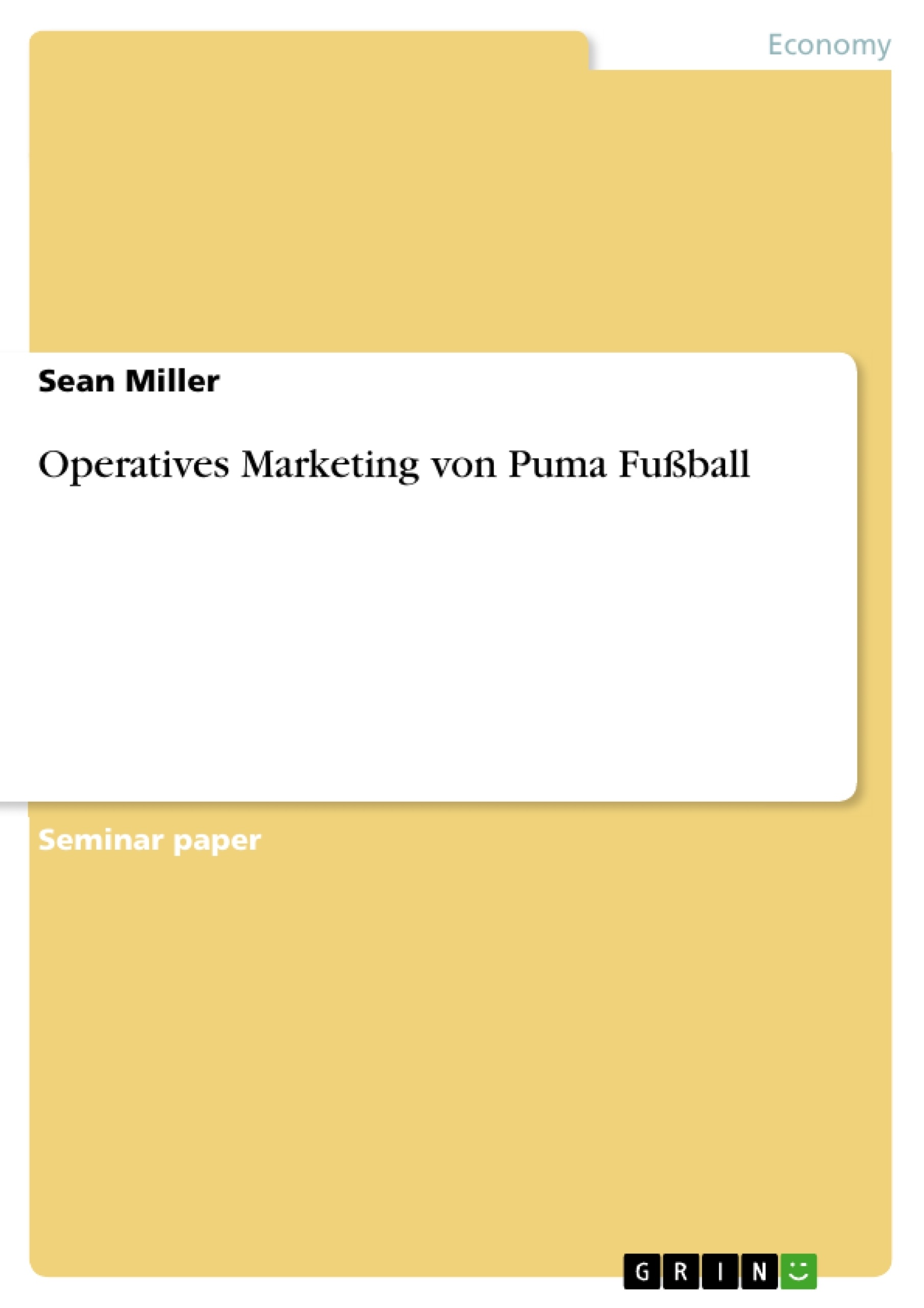Puma is one of three worldwide leading sportswear companies. But in difference to its competitors Puma is considered more of a sports lifestyle company. Puma promotes this image and exploits systematically the opportunities offered by the sports lifestyle market in all categories and regions. Puma Football plays a significant role in the portfolio of the company and its marketing was especially promoted in the last 12 months in view of the World Cup 2010 in South Africa. This paper is based on the Marketing Analysis of Puma which stressed on the position of Puma on the sportswear market in the segment of football and pointed out its unique selling proposition. It focuses on Operative Marketing and the combinations of marketing-political instruments that are used by Puma. In this context the paper will explain the theory of the product policy and then use this information to analyze products of Puma Football in terms of their product life cycle and product portfolio. But first the corporate and brand strategy will be introduced, since it is a pivotal issue of Puma´s marketing strategy and operative marketing instruments.
Table of Contents
I. Table of Figures
1. Introduction
2. Puma´s Corporate and Brand Strategy
3. Operative Marketing in Theory
3.1 Product Policy within the Marketing Mix
3.2 Analysis Methods
4. Product Policy of Puma
4.1 Product Life Cycle of Puma Football Shoes
4.2 Product Portfolio Analysis of Puma Football Shoes
5. Conclusion
II. Bibliography
III. Executive Summary



